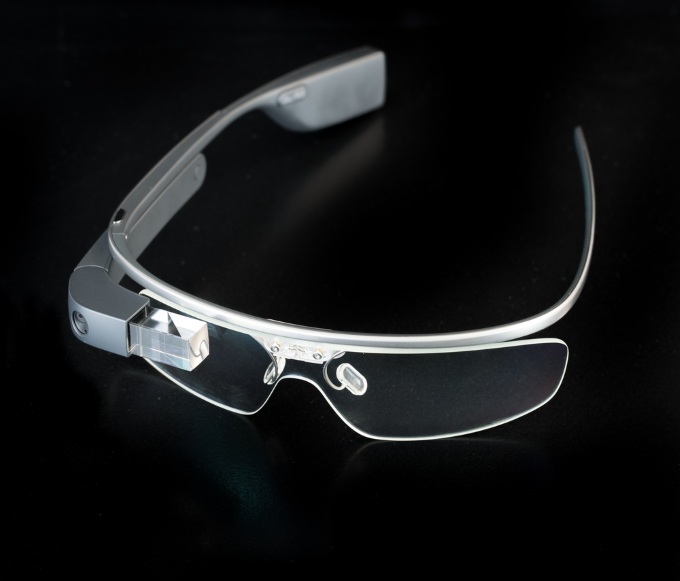Sarah Slocum just wanted to go out for a drink after work with friends. Slocum, a San Francisco-based tech writer and proud Google Glass owner, soon realized not everyone is terribly receptive to a wearable computer-and-camera attached to a stranger’s face.
An evening that might have started with not-so-polite requests for her to remove her face computer, quickly devolved into an uncomfortable confrontation. As you can see from the video Slocum recorded from her device:
Slocum is a member of a small demographic that has since been labeled glassholes. Becoming a glasshole is a Google-acknowledged problem with Glass owners. Google’s own documents define a glasshole as a creepy or rude person who does not respect the wishes of others with regards to the use of Glass. “Respect others’ privacy and if they have questions about Glass don’t get snappy,” requests Google.
Fault may rest on both parties at that San Francisco bar, but there’s an inherent irony in Slocum’s altercation. As the angry bar patrons attempted to rip the device from Slocum’s face for her supposedly recording video without their consent, multiple wall-mounted security cameras silently captured the conflict.
This irony may be the underlying reason why Google Glass is now dying a slow death.
Surveillance and society are now synonymous. Stepping into public spaces now carries the implied understanding that you will be photographed. Thinking you won’t be seen, or recorded, when you leave your house is a delightfully antiquated assumption.
For those who might doubt the stigma of being labeled a glasshole while wearing the $1,500 Google novelty, here is a real-world experiment you can try yourself: Carry around your phone and point the camera’s lens directly at people as you walk down the street.
You’ll received pointed comments concerning your motives and actions. You might hear requests to stop filming even if you’re not, and pressure to divulge what you’ll be “using those for.” Mothers may shield their children as you make your way past them based on the assumption that you’re a creep.
This situation is reminiscent of Jeff Goldblum’s quote from Jurassic Park. His character, at a loss with technology-run-wild, said: “Yeah, yeah, but your scientists were so preoccupied with whether or not they could that they didn’t stop to think if they should.”
That’s because this isn’t a question of good and evil. This isn’t even an exercise in right from wrong. It is merely the confusing boundaries between could and should. And that confusion will ultimately kill Google Glass.
Google’s Fleeting Interest in its Own Baby
Google has a history of abandoning its own products. Google Wave, Google+, Orkut, Google Reader, iGoogle, etc., all represent Google’s lack of interest in bringing a product to market and supporting it for the long term. Some may suggest that Google’s products are perpetually in Open Beta, meaning not officially released yet widely available. Maybe the company uses this as an excuse to release half-finished products with no real marketing strategy.
Google first called them Glass Explorers, but what most might just as easily call beta testers. The hope seemed to be that enthusiastic and influential users would market-by-example to a salivating mass-market consumer waiting to jump at the chance of the prestige of wearing Glass. Unfortunately, those influential first users turned the public perception from wide-eyed wonder to something a few pitchforks shy of the climax in Frankenstein.
The Glass Explorers campaign most certainly was not received as cool, or even desirable. Google’s hope for organic news stories highlighting the wide range of Glass uses didn’t materialize. In the end, the news stories focused more on public reaction, which was almost universally negative. Stories included shouting matches, assaults, and movie-theater ejections; signaling that the public just didn’t understand the product and felt threatened when they saw someone wearing Glass.
Honestly, who can blame them?
Also, consider Google’s tepid insistence that always-on facial recognition software would be banned from Glass, while also teaching programmers how easy it was to circumvent that restriction. “Google itself provided the information needed for developers to ‘hack’ its Glass systems to provide such services during a session at its I/O conference in May called ‘Voiding Your Warranty: Hacking Glass’,” reports Charles Arthur at The Guardian.
Fumbled Marketing Potential
Google’s failure to provide Glass to the desired Explorer demographic is crystal clear when compared to GoPro’s successful user-generated marketing campaign. GoPro makes a compact, waterproof go-anywhere camera.
The remarkable footage created by users and presented in GoPro’s marketing shows the vast potential for that adventurous product. Recently, GoPro released a dog harness called Fetch that allows users to attach the waterproof camera to their dog. The footage is as gripping as any free-running parkour video.
It’s clear Google targeted a demographic that isn’t living the kind of life that lends itself to gripping footage. Since primarily the Explorers chosen by Google were mostly Bay-Area tech journalists, Glass became more of a mundane personal assistant than a tool to capture the POV of an adventurous life. By Google’s own decision the term Glass Explorer became something of an oxymoron.
“Google is the wrong company to push a product like this because to most users Google is a faceless corporation that deals in information. It’s a HAL 9000,” says ZDNet contributor Adrian Kingsley-Hughes. Quite simply, Google is not cool. Apple is cool. GoPro is cool. Google is data. Google is interested in collecting and quantifying every morsel of data it can gather on every single person. So, perhaps the most poisonous characteristic of Glass is the company that makes it.
Moving Forward
It is unlikely that Google Glass in its current form will ever reach any mass-market consumer. Google’s hi-tech trinket is prohibitively expensive, unwelcome in public, and wrought with a lack of support. These few facts will unfortunately mark the slow, sad death for Google Glass.







